What is the background to this study?

Some of these changes to healthcare delivery have since remained in place. We wanted to see if individual experiences of these changes might help us to learn lessons about how best to deliver care for people with MSK conditions in the future.
What did we want to find out?
We wanted to understand individuals’ perceptions of the healthcare they accessed (or attempted to access) during the pandemic. By understanding what patients valued about their experiences, we aimed to learn lessons to help us shape healthcare delivery for people with MSK conditions in the future.
What did we do?
Initially, we asked people with either a diagnosis of axial spondyloarthritis, psoriatic arthritis, or chronic pain to complete a questionnaire during June-December 2020 about their experiences during the COVID-19 pandemic, including their views on healthcare provision during and after the national lockdown(s) and subsequent changes to services.
We used this survey to understand clinical and personal characteristics which were associated with attempting to access care. We also conducted one-on-one interviews over the phone with a selection of these people to try to understand, in depth, the impact of the pandemic on their lives, including on their experiences of healthcare.
What did we find?
1054 individuals completed the survey, and of these 57% had tried to access healthcare at some point between the start of the UK’s first lockdown and December 2020.
We then conducted 23 interviews to understand individuals’ personal experiences of accessing healthcare during the pandemic. Within these interviews, we identified three key aspects of healthcare services that people valued, which influenced their experience of the care they received:
- Communication and relationships with healthcare professionals
- Transparent, timely and effective pathways through the healthcare system
- Equal access to care for everyone
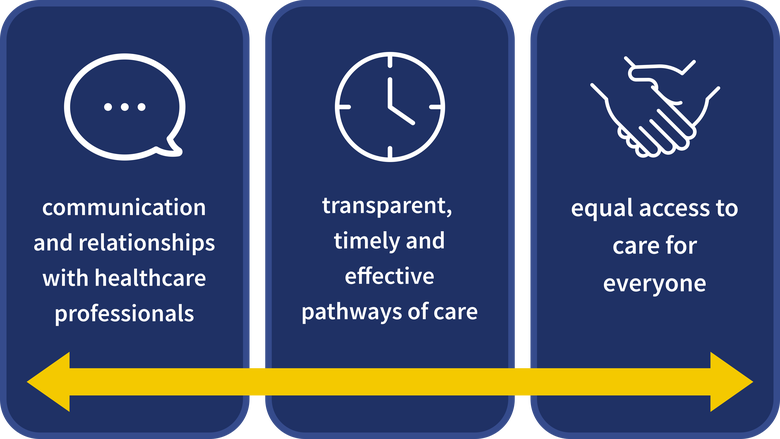
Higher levels of anxiety were associated with attempting to access care, but also with deciding to avoid seeking care. Our interviews identified some possible reasons for this. Whether individuals had previously established relationships with their clinicians impacted on how reassured (or not) they felt about the care they received, as did differences in the method of communication used. When people knew the person they were talking to, they noted some benefits of a remotely-delivered consultation. However, for some face-to-face discussion was critical for maintaining clinical relationships, for feeling reassured about symptoms, and for being able to fully convey their personal and clinical situation:
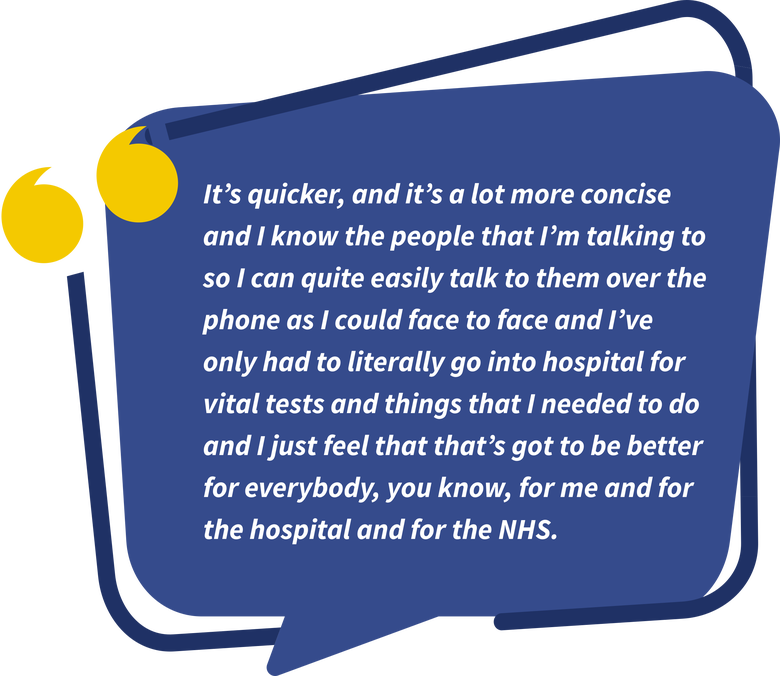
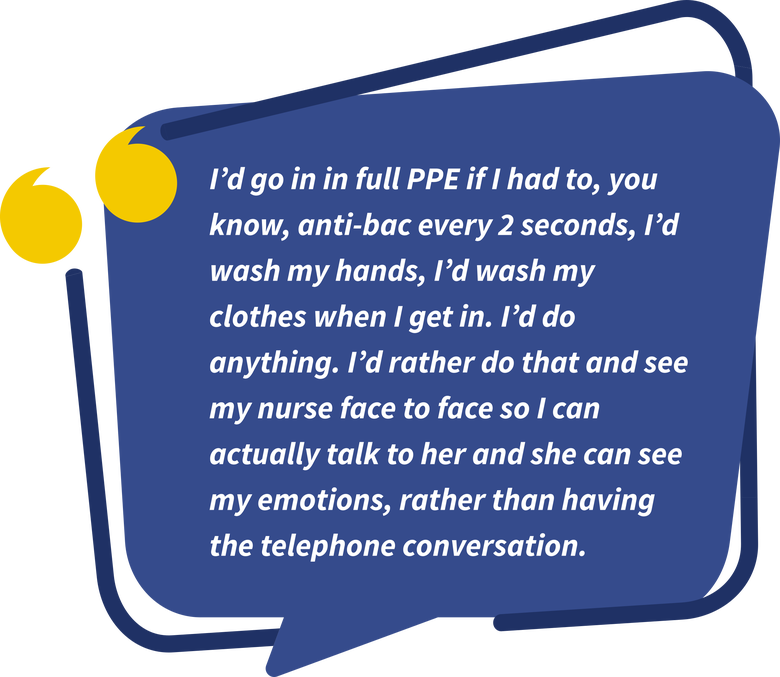
Over one quarter of people who tried to book an appointment were unable to. Within the interviews, people often described not knowing who to contact and when. This lack of clarity sometimes meant that individuals delayed seeking care for symptoms. In the future, interviewees described a desire for clearly communicated service pathways and flexible healthcare delivery that took their preferences into account:
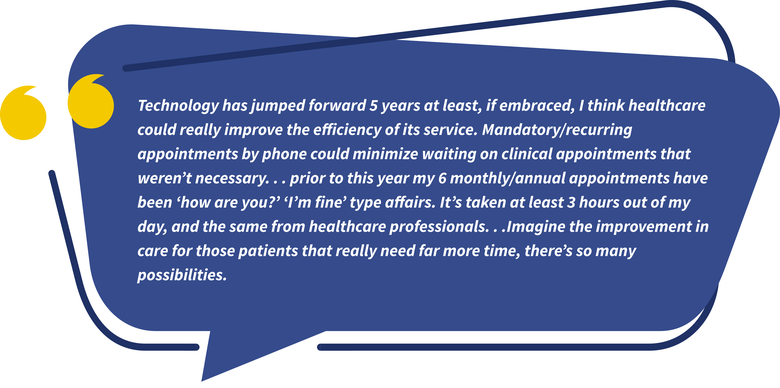
Interviewees also described the importance of having a service that can meet the care needs of everyone. In particular, some people expressed concern for the care of individuals who might struggle with the new technology required for remotely-delivered care, for patients with more complex conditions and even for those who may be more hesitant while using the phone:
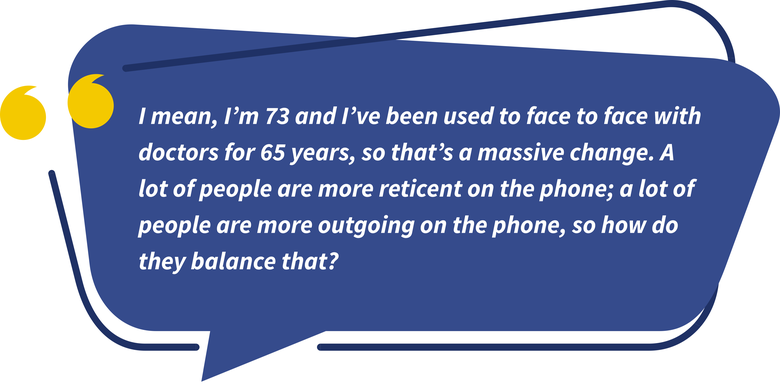
Why does this matter?
These findings provide important lessons about what patients value when accessing healthcare and in healthcare delivery more generally. As services reconfigure and remobilise, these findings offer valuable insight to enable us to target services to better meet the needs of those with MSK conditions, and to develop services that are aligned with patients’ values and preferences.
Where can I read more?
To view the full scientific paper, click here.
